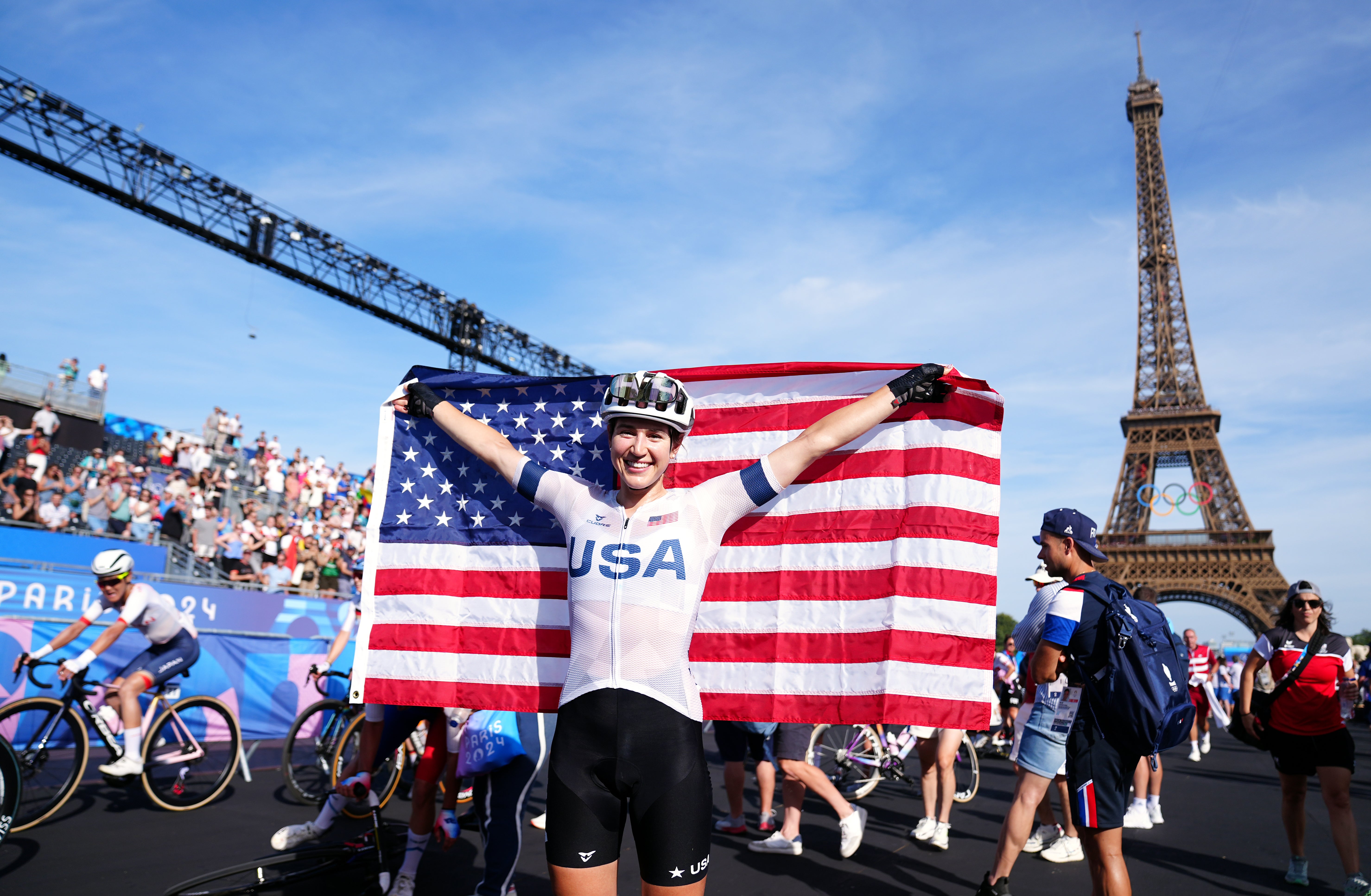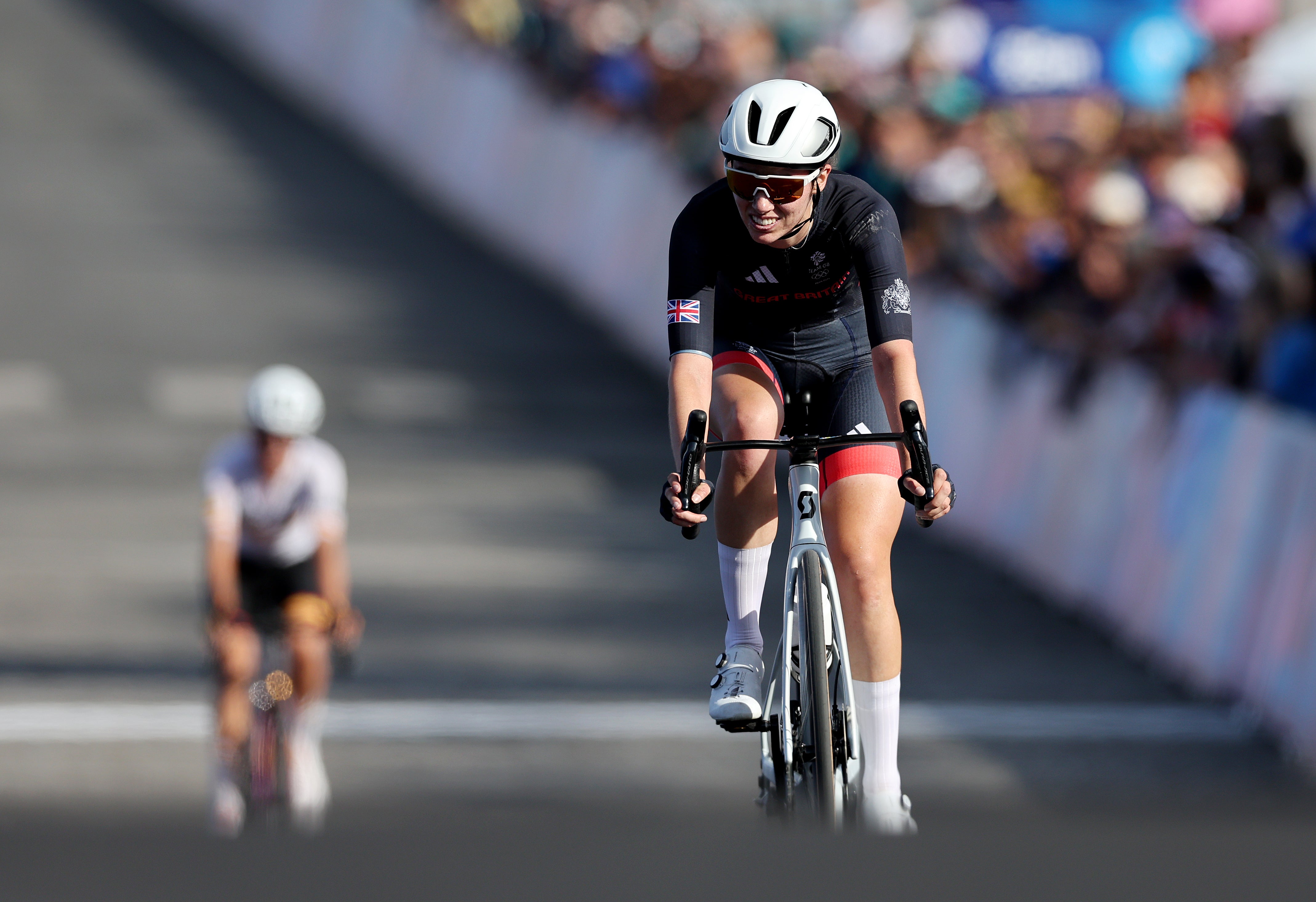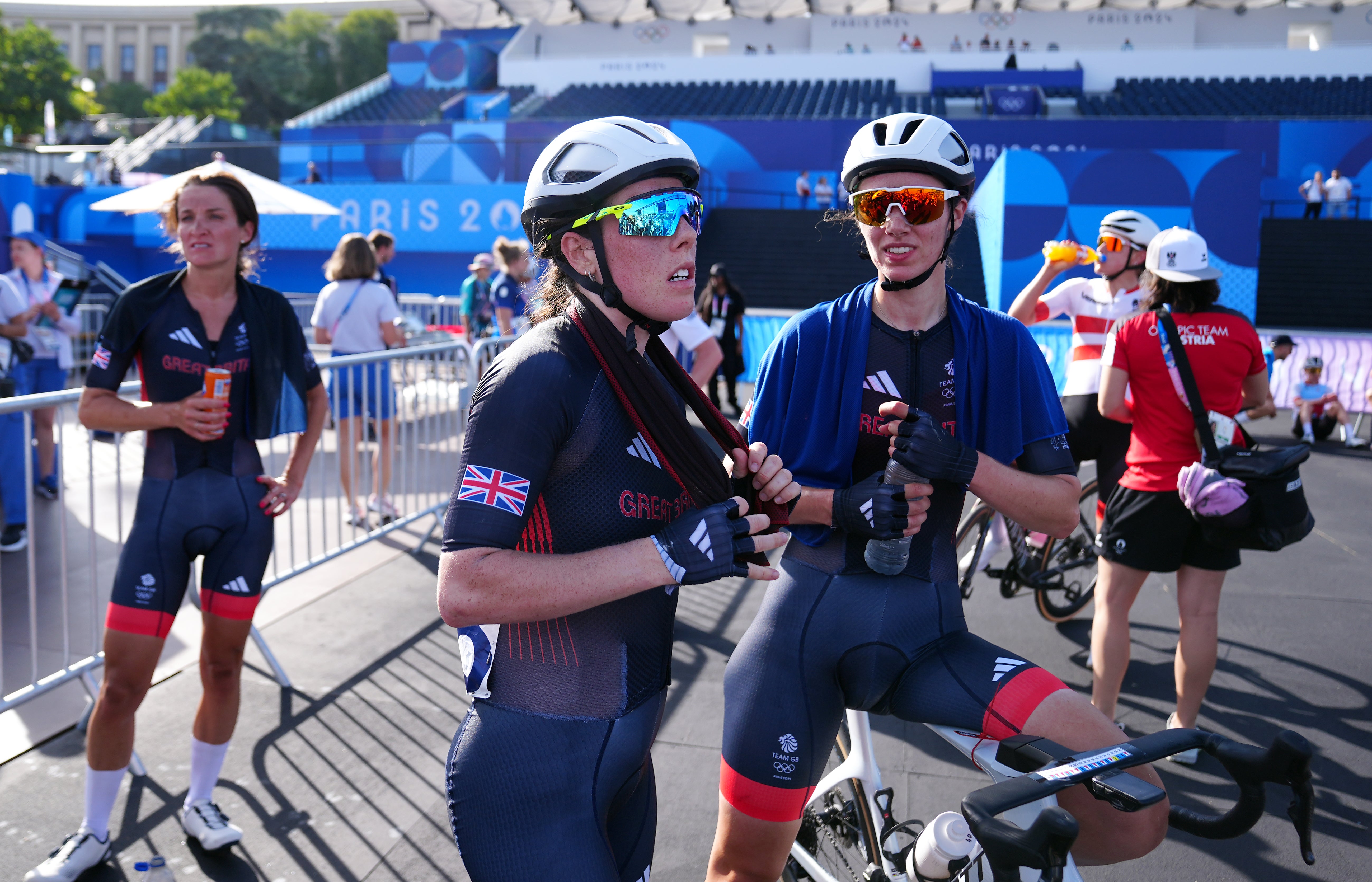Pfeiffer Georgi upbeat despite squandering golden opportunity in the women’s road race
Team Great Britain squandered an ideal opportunity in the women’s road cycling race

Alaskan Kristen Faulkner claimed a shock win in the women’s road race but only after Team GB squandered a golden opportunity.
Britain was the only nation to have three riders in a star-studded lead group of 12 that approached the cobbled climbs of Montmartre, 30km from home.
Lizzie Deignan and Anna Henderson had done their job for Pfeiffer Georgi perfectly up to that point.
But the pair were soon dropped, leaving Georgi to fend for herself and fall to fifth with USA’s Faulkner launching a late solo attack to claim gold under the Eiffel Tower.
“I’m a bit gutted,” said Georgi. “I felt really good, and I was really hoping something special might happen and I could be in with a shout for a medal. But on the last climb, my legs said no.”
Faulkner is the first American to win the women’s road race since Connie Carpenter-Phinney at LA 1984.
Without the team radios that riders are accustomed to on the pro circuit, Olympic road races are infamously chaotic, and this edition did not disappoint.
Austrian mathematician Anna Kiesenhofer produced one of the biggest upsets in Games history in Tokyo and the big names were caught cold once again.
A crash involving Faulkner’s team-mate Chloe Dygert as the race approached Paris allowed the lead group to slip clear and establish a 30-second advantage.
The presence of their trio in that group gave Team GB a great chance to go for a medal but Deignan and Henderson fell away 30km from home and Georgi launched a premature attack that was quickly quashed by pre-race favourite Lotte Kopecky and company.
“We could have done a few things differently,” admitted Georgi. “I don’t know if we got it right. It’s the Olympics and I think anything can happen. I’d rather die trying than not try at all.”


The decisive breakaway looked to have come from Netherlands’ Marianne Vos and Blanka Vas of Hungary who surged into a 27-second lead.
But they were caught on the third and final climb up Montmartre by Faulkner and Kopecky, with the American pouncing on a moment of indecision to claim victory by a margin of just less than a minute.
Vos and Kopecky outsprinted Vas to claim silver and bronze, respectively.
“The Olympics is a completely different dynamic to any other race,” said Georgi.
“We’re never team-mates on the road, so it is a combination of things. We were just trying to stay towards the front to keep an eye on everything. It’s new, it’s an unpredictable race and you just have to try and do what you can in totally different circumstances.”
Just as they did for Saturday’s men’s road race, the city centre streets were teeming with crowds to create a febrile atmosphere, particularly on Montmartre.
It might have made team communication even more difficult, but Georgi didn’t care.
“That was amazing,” said Georgi. “Best crowd I’ve ever experienced in my life, it was something else.”
Watch every moment of the Olympic Games Paris 2024 live only on discovery+, the streaming home of the Olympics
Join our commenting forum
Join thought-provoking conversations, follow other Independent readers and see their replies
Comments


Bookmark popover
Removed from bookmarks